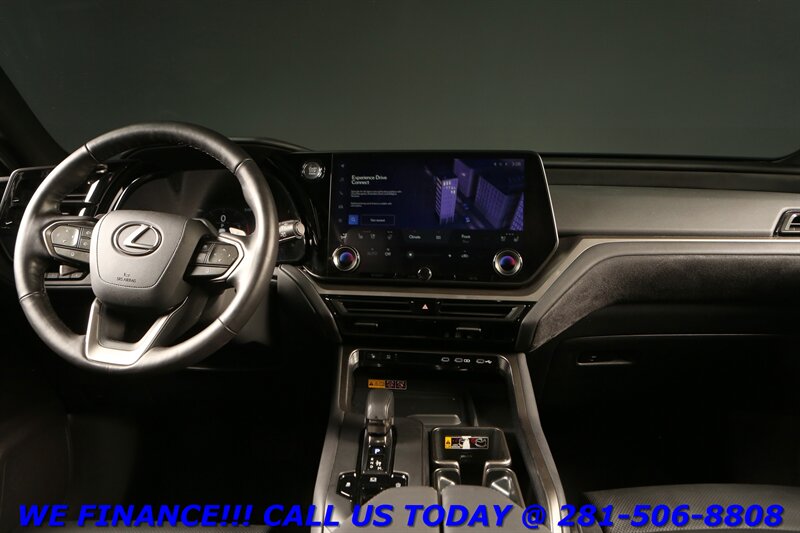Browse Our Inventory
Alfa Romeo (2)
Audi (12)
Bentley (2)
BMW (16)
Buick (1)
Cadillac (8)
Chevrolet (11)
FIAT (1)
Ford (8)
Forest River (1)
GMC (2)
Honda (1)
INFINITI (2)
Jaguar (4)
Jeep (1)
Land Rover (11)
Lexus (10)
Maserati (1)
Mercedes-Benz (23)
Nissan (5)
Porsche (5)
Rivian (1)
Subaru (2)
Tesla (13)
Toyota (2)
Volkswagen (1)
Volvo (2)
Search Options:
148
Vehicles
Found
2025 CHEVROLET EQUINOX EV LT NAV ADAPT CRUISE BLIND LANE COLLISION CAMERA KEYLESS BLUETOOTH 19"ALLOYS LED
Black
Black
1-Speed Direct-Drive
Electric
Electric 220hp 243ft. lbs.
12,857 miles
3GN7DLRP5SS160690
160690
117 City / 100 Highway
Ultimate Sale Price
$22,995
Ultimate Sale Price
$22,995
WE FINANCE 2.99%+ CLEAN CARFAX ! 319 MILE RANGE ADAPTIVE CRUISE WARRANTY LOADED !
2025 CHEVROLET EQUINOX EV LT 1 NAV ADAPT CRUISE BLIND LANE COLLISION HEATSEAT KEYLESS CAMERA BLUETOOTH PWR SEAT 19"ALLOYS LED
Radiant Red Tintcoat
Black
1-Speed Direct-Drive
Electric
Electric 220hp 243ft. lbs.
12,363 miles
3GN7DMRP7SS237307
237307
117 City / 100 Highway
Ultimate Sale Price
$22,995
Ultimate Sale Price
$22,995
WE FINANCE 2.99%+ CLEAN ! NAV ADAPTIVE CRUISE 319 MILE WANGE WARRANTY $38K MSRP !
2025 VOLVO XC90 B6 PLUS BRIGHT THEME AWD NAV PANO BLIND LANE HEATSEAT REAR HEATSEAT CAMERA KEYLESS WOOD 7PASS ROOF RAILS 21"ALLOYS LED
Denim Blue Metallic
Charcoal
8-Speed Shiftable Au
Gasoline
2.0L Twincharged I4 295hp 310ft. lbs.
10,731 miles
YV4062PB6S1368453
368453
20 City / 26 Highway
Ultimate Sale Price
$46,995
Ultimate Sale Price
$46,995
WE FINANCE 2.99%+ CLEAN CARFAX ! MID YEAR NEW BODY STYLE $67K MSRP LOADED !
2024 ALFA ROMEO TONALE Ti eAWD PLUG-IN HYBRID NAV SUN LEATHER ADAPT CRUISE BLIND LANE COLLISION HEATSEAT HEAT STEER CAMERA KEYLESS HARMAN 20"ALLOYS LED
Alfa Rosso
Black
Aisin 6-Speed Shifta
Hybrid
1.3L Plug-in Hybrid Turbo I4 285hp 347ft. lbs.
31,666 miles
ZASPATCW6R3034036
034036
29 City / 29 Highway
Ultimate Sale Price
$21,995
Ultimate Sale Price
$21,995
WE FINANCE 2.99%+ CLEAN CARFAX ! PLUG IN ELECTRIC+GASOLINE HYBRID $54K MSRP ! FACTORY WARRANTY !
2024 BMW X7 M60i AWD NAV HUD PANO LEATHER ACTIVE CRUISE BLIND LANE COLLISION HEAT/COOL/MASSAGE SEATS REAR HEATSEAT CAMERA KEYLESS 22"ALLOYS ROOF RAILS LED
Brooklyn Grey Metallic
Ivory White
8-Speed Shiftable Au
Hybrid
4.4L Mild Hybrid Twin Turbo V8 523hp 553ft. lbs.
40,409 miles
5UX33EM0XR9S49361
S49361
16 City / 21 Highway
Ultimate Sale Price
$71,995
Ultimate Sale Price
$71,995
WE FINANCE 2.99%+ CLEAN ! TWINTUBRO V8 $123K MSRP WARRANTY !
Featured Special
2024 BMW X3 sDrive30i CONVENIENCE PKG NAV PANO BLIND LANE COLLISION HEATSEAT CAMERA KEYLESS WOOD BLUETOOTH PWR SEATS 19"ALLOYS ROOF RAILS LED
Mineral White Metallic
Black
8-Speed Shiftable Au
Gasoline
2.0L Turbo I4 248hp 258ft. lbs.
31,946 miles
5UX43DP09R9U27688
U27688
23 City / 29 Highway
Ultimate Sale Price
$30,995
Ultimate Sale Price
$30,995
WE FINANCE 2.99%+ CLEAN CARFAX ! CONVENIENCE PKG CARPLAY HIFI SOUND !
Featured Special
2024 BMW X6 xDrive40i M SPORT PROFESSIONAL EXECUTIVE PKG NAV HUD PANO LEATHER BLIND LANE COLLISION HEAT/COOL/MASSAGE SEATS CAMERA HARMAN KEYLESS WOOD 21"ALLOYS LED
Black Sapphire Metallic
Tartufo
8-Speed Shiftable Au
Gasoline
3.0L Mild Hybrid Turbo I6 375hp 398ft. lbs.
21,789 miles
5UX33EX02R9S29813
S29813
23 City / 26 Highway
Ultimate Sale Price
$63,995
Ultimate Sale Price
$63,995
WE FINANCE 2.99%+ CLEAN CARFAX ! M-SPORT PRO PANO HARMAN EXEC LIVE PRO PARK ASST WOW !
2024 CHEVROLET BLAZER EV LT AWD NAV PANO LEATHER ADAPT CRUISE BLIND LANE COLLISION HEATSEAT CAMERA KEYLESS 19"aLLOYS ROOF RAILS LED
Radiant Red Tintcoat
Black
1-Speed Direct-Drive
Electric
Electric 288hp 333ft. lbs.
19,971 miles
3GNKDBRJ6RS247363
247363
103 City / 88 Highway
Ultimate Sale Price
$23,895
Ultimate Sale Price
$23,895
WE FINANCE 2.99%+ CLEAN CARFAX ! 2LT PANO LEATHER $52K MSRP !
2024 LEXUS TX 350 APPLE CARPLAY ANDROID AUTO HUD PANO LEATHER BLIND LANE RADAR CRUISE CAMERA M. LEV KEYLESS 20"aLLOYS ROOF RAILS XENONS FOG LIGHTS
Caviar
Black
8-Speed Shiftable Au
Gasoline
2.4L Turbo I4 275hp 317ft. lbs.
33,085 miles
5TDAAAA64RS008929
008929
21 City / 27 Highway
Ultimate Sale Price
$50,995
Ultimate Sale Price
$50,995
WE FINANCE 2.99%+ CLEAN CARFAX ! CAPTIAN CHAIRS 360CAM TECH 6-PASS MARK LEVINSON SOUND !
Featured Special
2023 AUDI Q5 QUATTRO PREMIUM AWD LEATHER CAMERA HEATSEAT KEYLESS WOOD 18"ALLOYS ROOF RAILS LED
Mythos Black Metallic
Black
7-Speed Double Clutc
Gasoline
2.0L Turbo I4 201hp 236ft. lbs.
23,508 miles
WA1ABAFY8P2027022
027022
23 City / 29 Highway
Ultimate Sale Price
$27,995
Ultimate Sale Price
$27,995
WE FINANCE 2.99%+ CLEAN ! NAV PANO 23K LOW MILES ! WARRANTY !



 View the Free
View the Free 





 View the Free
View the Free 










